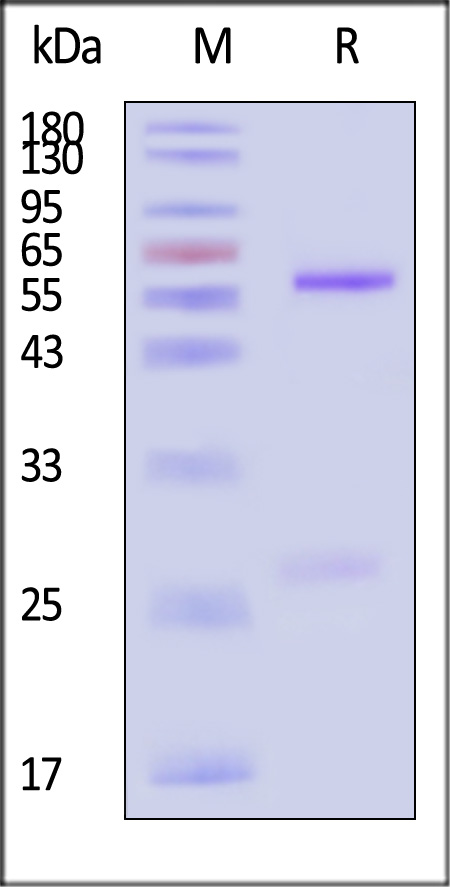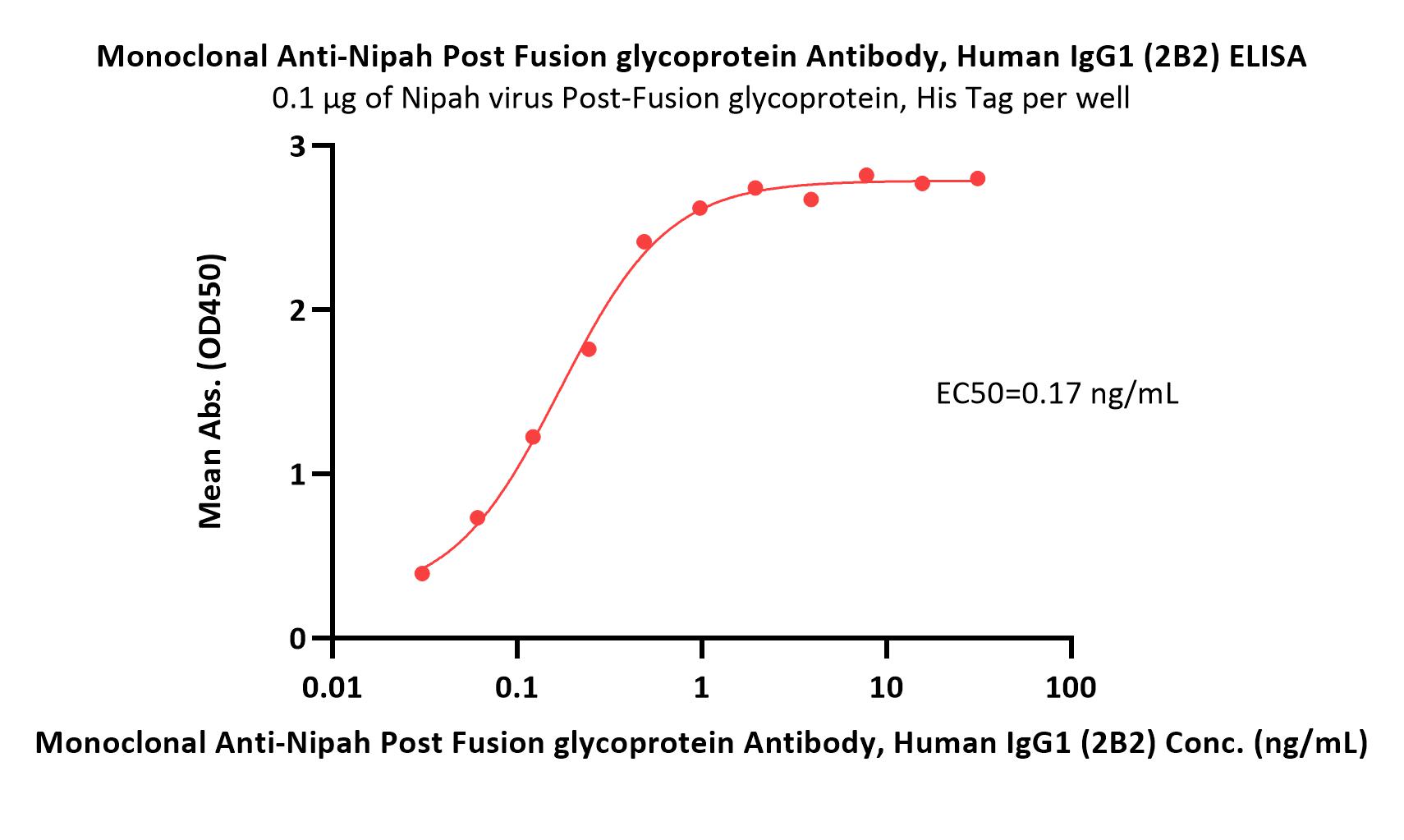抗体来源(Source)
Monoclonal Anti-Nipah Post Fusion glycoprotein Antibody, Human IgG1 (2B2) is a chimeric monoclonal antibody recombinantly expressed from HEK293, which combines the variable region of a mouse monoclonal antibody with Human constant domain.
克隆号(Clone)
2B2
亚型(Isotype)
Human IgG1 | Human Kappa
偶联(Conjugate)
Unconjugated
抗体类型(Antibody Type)
Recombinant Monoclonal
种属反应性(Reactivity)
Virus
特异性(Specificity)
This product is a specific antibody specifically reacts with Nipah Post Fusion glycoprotein.
应用(Application)
| Application | Recommended Usage |
| ELISA | 0.03-31 ng/mL |
纯度(Purity)
>95% as determined by SDS-PAGE.
纯化(Purification)
Protein A purified / Protein G purified
制剂(Formulation)
Lyophilized from 0.22 μm filtered solution in PBS, pH7.4 with trehalose as protectant.
Contact us for customized product form or formulation.
重构方法(Reconstitution)
Please see Certificate of Analysis for specific instructions.
For best performance, we strongly recommend you to follow the reconstitution protocol provided in the CoA.
存储(Storage)
For long term storage, the product should be stored at lyophilized state at -20°C or lower.
Please avoid repeated freeze-thaw cycles.
This product is stable after storage at:
- -20°C to -70°C for 12 months in lyophilized state;
- -70°C for 3 months under sterile conditions after reconstitution.
电泳(SDS-PAGE)

Monoclonal Anti-Nipah Post Fusion glycoprotein Antibody, Human IgG1 (2B2) on SDS-PAGE under reducing (R) condition. The gel was stained with Coomassie Blue. The purity of the protein is greater than 95% (With Star Ribbon Pre-stained Protein Marker).
活性(Bioactivity)-ELISA

Immobilized Nipah virus Post-Fusion glycoprotein, His Tag (Cat. No. PON-V52H3) at 1 μg/mL (100 μL/well) can bind Monoclonal Anti-Nipah Post Fusion glycoprotein Antibody, Human IgG1 (2B2) (Cat. No. NIN-M759) with a linear range of 0.03-1 ng/mL (QC tested).
Protocol
背景(Background)
Hendra virus (HeV) and Nipah virus (NiV) are henipaviruses discovered in the mid-to late 1990s that possess a broad host tropism and are known to cause severe and often fatal disease in both humans and animals. HeV and NiV infect host cells through the coordinated efforts of two envelope glycoproteins. The G glycoprotein attaches to cell receptors, triggering the fusion (F) glycoprotein to execute membrane fusion. G is a type II homotetrameric transmembrane protein responsible for binding to ephrinB2 or ephrinB3 (ephrinB2/B3) receptors. F is a homotrimeric type I transmembrane protein that is synthesized as a premature F0 precursor and cleaved by cathepsin L during endocytic recycling to yield the mature, disulfide-linked, F1 and F2 subunits. Upon binding to ephrinB2/B3, NiV G undergoes conformational changes leading to F triggering and insertion of the F hydrophobic fusion peptide into the target membrane. Subsequent refolding into the more stable post-fusion F conformation drives merger of the viral and host membranes to form a pore for genome delivery to the cell cytoplasm.























































 膜杰作
膜杰作 Star Staining
Star Staining











